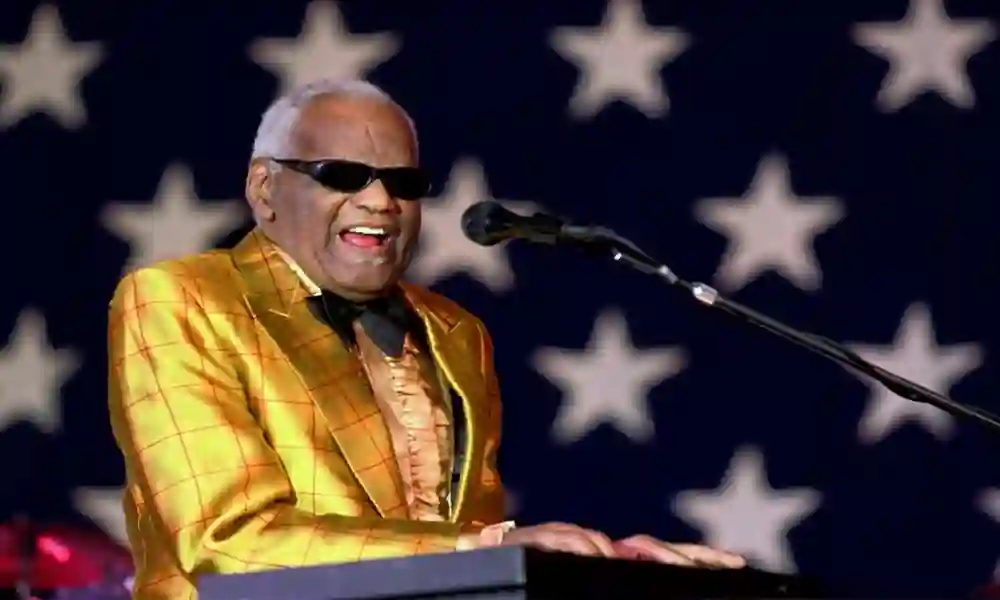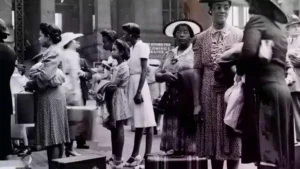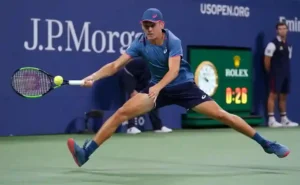10 Famous Blind Piano Players & Iconic Blind Musicians

Alright, let’s start with this: you know that feeling when you’re listening to a blind piano player and you can’t believe your ears? Like, “how does this person do it?” That’s the magic of these musicians. The world of blind piano players is filled with incredible artists who’ve not only defied the odds but have changed the musical landscape forever. I’m talking about some truly legendary figures who—despite the absence of sight—turned their challenges into pure, unfiltered art. So, buckle up. We’re diving into the stories of 10 blind piano players, the ones who played their way into musical history, from soul to jazz, blues to classical.
1. Ray Charles – The Genius of Soul
Ray Charles. The guy who made soul a thing. People still talk about him like he’s some kind of musical god—and for good reason. Ray, born in 1930, lost his sight when he was just 7 years old due to glaucoma. But that didn’t stop him from becoming one of the most influential blind piano players in history. Nope. Not at all. In fact, Ray Charles turned his blindness into fuel for his musical fire, blending jazz, gospel, and blues into a style that hit home for millions.
I remember the first time I heard “What’d I Say.” My mind was blown. The way he moved between chords on that piano, like the keys were extensions of his soul, was just—ugh, it was magic. And let’s be real: anyone who can take a standard like “Georgia on My Mind” and make it feel like he’s singing straight to your heart deserves a standing ovation. He wasn’t just a blind pianist—he was the blueprint for soul music. To this day, his influence can be heard in artists like Alicia Keys, Stevie Wonder, and countless others.
2. Stevie Wonder – A Living Legend
Okay, here’s the kicker: Stevie Wonder was born blind—yet somehow he was one of the most innovative musicians of the 20th century. Born in 1950 in Michigan, Stevie’s blindness wasn’t just a hurdle; it was part of the story. He was playing the piano at age 7, and by 11, he was already a signed artist with Motown. If that doesn’t scream “legend,” I don’t know what does.
I remember listening to “Superstition” for the first time—I think I was in high school—and realizing, “Wait, this dude’s been playing music with his whole body. This isn’t just about the piano. This is an experience.” His funky, groove-heavy style turned him into an international superstar. You know that in-the-pocket vibe that makes a song feel timeless? That’s Stevie Wonder. Whether it’s “Isn’t She Lovely” or “Sir Duke,” his piano skills—paired with his unique voice—make him an undeniable force in the music world. If you ever catch yourself tapping your foot to some classic tunes, there’s a solid chance Stevie’s behind that. Blind black piano player? More like musical legend.
3. Art Tatum – Jazz Virtuoso
Now, let’s talk about Art Tatum for a sec. This guy was so ahead of his time that jazz pianists today still can’t quite match his brilliance. Born in 1909 in Toledo, Ohio, Art lost his sight early on due to congenital cataracts. But you know what? It didn’t stop him. This man could play things on the piano that people thought were impossible. And, no, I’m not exaggerating. Tatum’s technique was—straight up—mind-blowing.
I once watched a video of him playing “Tea for Two,” and I was like, “Wait, this can’t be real. This must be CGI.” His hands moved faster than my brain could even process. His speed, complexity, and improvisational chops made him a blind pianist who set the bar for jazz musicians. People like Oscar Peterson and Chick Corea cited him as a major influence. Fun fact: Even jazz giants like Duke Ellington and Count Basie were in awe of his piano playing.
Anyway, here’s the kicker: Art Tatum was a living legend, and he didn’t let the world of jazz—or his blindness—limit him one bit.
4. Blind Willie Johnson – A Pioneer of Blues Guitar and Vocals
Okay, this one’s a little different. Blind Willie Johnson was mostly known for his guitar skills, but he was also a blind black piano player who played an essential role in shaping early blues. Born in 1897 in Texas, Johnson lost his sight as a child after an accident. But his blindness didn’t stop him from making some of the most haunting blues music ever recorded.
Now, here’s the thing: You don’t just play blues. You feel blues. And Johnson’s combination of powerful guitar riffs and piano accompaniment had the emotional weight of a freight train. Songs like “Dark Was the Night, Cold Was the Ground” are legendary not just for their musical innovation, but for the raw, gritty feeling that permeates them. They almost make you feel like you’re standing in the middle of a dust storm on a Southern dirt road. It’s that visceral. Johnson’s music transcends time, and the man’s contribution to the blues genre is undeniable.
I mean, seriously, who else could make you feel like they’re singing directly to your soul with just an acoustic guitar, piano, and raw emotion?
5. Lennie Tristano – The Father of Cool Jazz Piano
Lennie Tristano. If you’ve ever dabbled in jazz, you’ve probably heard his name. This guy was a blind pianist who could improvise like nobody’s business. Born in 1919, Tristano lost his sight shortly after birth. But blindness didn’t stop him from becoming one of the coolest cats in the jazz world. He was the guy who pushed the boundaries of harmonic complexity and improvisation.
My friend Tim swears that the first time he heard Tristano’s “Lennie’s Pennies,” he thought it was a whole orchestra. No joke, the guy was that good. Tristano’s genius lay in his ability to create intricate lines that seemed to defy gravity. And while he’s not as widely known as, say, Charlie Parker, he’s one of the most influential figures in the development of cool jazz. I think it’s safe to say that any blind piano player with the kind of talent Lennie Tristano had could play at a level that defies even the most challenging expectations.
6. Nobuyuki Tsujii – A Classical Music Prodigy
Here’s where things get interesting: Nobuyuki Tsujii. This guy is a blind piano player in the classical world who completely shattered expectations. Born in 1988 in Japan, Tsujii was born blind, but by the time he was in his teens, he was already showing the world just how much he could do. In 2009, he won the Van Cliburn International Piano Competition—talk about impressive.
What’s wild is that he has this insane ability to bring out the depth of classical music in a way that feels almost like he’s unlocking hidden treasures in every note. I mean, his interpretations of Beethoven and Chopin are out of this world. I don’t know about you, but after hearing his performance of Beethoven’s Piano Concerto No. 3, I was sitting there with my mouth hanging open. Tsujii proves that a blind pianist can not only succeed in classical music but also redefine it.
So yeah, you can be blind and still make the most complex classical compositions sound like they were written just for you. Take that, life.
7. José Feliciano – Blind Guitarist and Singer
Now, José Feliciano is one of those multi-instrumentalist legends. Most people know him as the guy who made “Feliz Navidad” a holiday classic, but did you know he’s also a skilled blind piano player? Born in Puerto Rico in 1945, Feliciano lost his sight shortly after birth due to congenital glaucoma, but that didn’t stop him from becoming a master of multiple instruments, including the piano.
I remember hearing him play “Light My Fire” when I was a kid and thinking, “Wait, this guy is blind?” His ability to play guitar and piano simultaneously—and make both sound effortless—is something few musicians could pull off. Feliciano didn’t just break barriers in pop music; he literally rewrote what it meant to be a blind musician. And yeah, “Feliz Navidad” is a banger, but his versatility as a musician is what really stands out to me.
8. Ray Charles Jr. – Carrying On the Legacy
Okay, here’s a twist: Ray Charles Jr., the son of the legendary Ray Charles. This guy? He’s also a blind piano player following in his father’s massive footsteps. Born in 1955, Ray Charles Jr. inherited his father’s musical talent—and yeah, you can guess where this is going: he’s also killing it. While his father was the blind piano player who helped shape soul music, Ray Charles Jr. is doing his part to carry on that legacy.
His music? Definitely influenced by his dad, but it’s also got its own flavor. So, if you’re into blues, jazz, and soul, you gotta check out Ray Charles Jr. He’s not just living in his father’s shadow; he’s forging his own path, proving that the talent runs in the family.
9. Ronnie Milsap – Country Legend
Alright, country fans—time to listen up. Ronnie Milsap, the country legend, was born blind and still managed to become one of the biggest names in country music. Born in 1943, Milsap’s early years were filled with obstacles, but his love for music led him to pursue a career that would land him 40 chart-topping hits in country music. His piano skills are slick, and his voice? Legendary.
Fast forward past three failed attempts at songwriting (I’m kidding, but I imagine there were some), and Milsap’s blend of country, pop, and R&B helped him dominate the 70s and 80s. Songs like “Smoky Mountain Rain” and “I Wouldn’t Have Missed It for the World” prove that you can be a blind piano player and still make your mark on country music history.
10. Moondog – The Street Musician and Composer
Last but certainly not least: Moondog. Born Louis Thomas Hardin, Moondog was a street musician and composer who, in a lot of ways, redefined the sound of New York City in the 20th century. He lost his sight at a young age, but instead of just existing on the fringes of music, he became a major figure in the avant-garde music scene.
Fun fact: Moondog wrote “Moondog Symphony” on the streets of New York. No joke. The dude wasn’t just playing music; he was creating it on his terms, blending classical, jazz, and Native American influences. What’s even wilder? He collaborated with icons like Leonard Bernstein. And his street performances? Legendary. You could find him performing in the same spot every day, bringing his avant-garde symphony to the people. His compositions still hold up, and I like to think he’d be the perfect soundtrack for any city street today.
Wrap-up: Talent, Not Bound by Vision
So there you have it, folks. These blind piano players didn’t just overcome blindness—they turned it into a force of nature. Whether they were shaking the foundations of jazz, inventing soul, or mastering classical piano, these artists have shown the world that greatness comes in many forms. And maybe, just maybe, they also proved that if you can’t see the world, you can always hear it just a little bit better.







